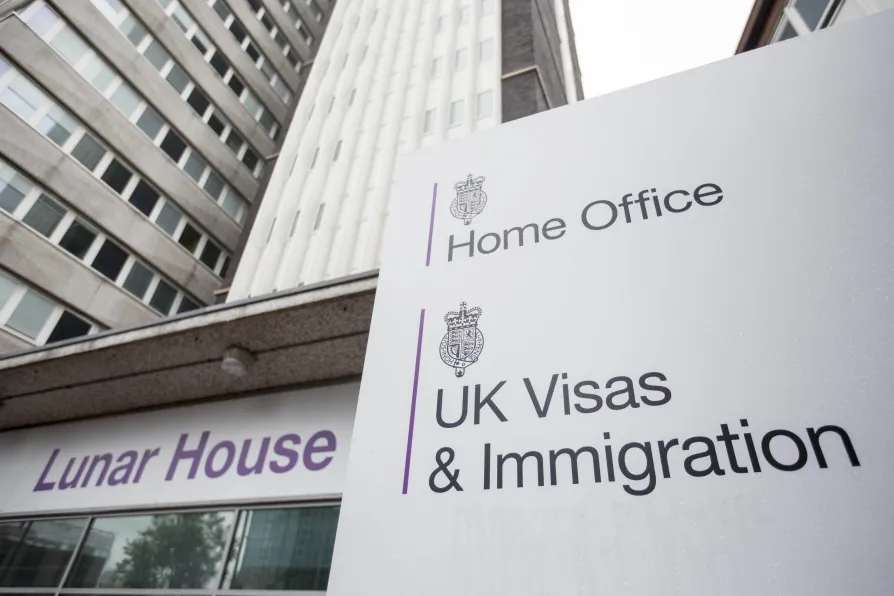John Wojcik pays tribute to a black US activist who spent six decades at the forefront of struggles for voting rights, economic justice and peace – reshaping US politics and inspiring movements worldwide
The visa system traps workers with abusive employers, creating a vulnerable workforce scared to complain for fear of deportation — that is why we’re campaigning for a ‘common sponsorship’ model instead, writes FAVOUR DAVIDKING

 Lunar House in Croydon, south London which houses the headquarters of UK Visas and Immigration, a division of the Home Office
Lunar House in Croydon, south London which houses the headquarters of UK Visas and Immigration, a division of the Home Office
THE health and social care sector across Britain is sustained by thousands of dedicated workers who arrived on valid visas to fill critical roles.
Yet, despite holding the system together, these professionals are increasingly in headlines: poor pay and a devastatingly hostile environment, legally present migrants and expatriates are hurtfully labelled “immigrants,” stripping away their dignity and ignoring the crucial sacrifices they make.
Migrants are significantly net contributors to the tax base and they fill gaps in the labour market that the British economy cannot supply. While talking tough on immigration is imperative, we remember the history of “Great Britain and black blood.”
The true cost of care
The work undertaken by migrant care workers is mentally and physically draining, a job that many non-migrants are unwilling to do due to low pay and the significantly increased pressures of chronic low staffing.
Workers endure daily challenges that go far beyond professional duty, including physical and verbal abuse, facing being spat on, having hair pulled, objects thrown and relentless shouting during crises, while maintaining a level of person-centred care that demands immense compassion and resilience.
Despite this essential labour, workers are often trapped on the lowest pay scales, disrespectfully labelled “low-income earners,” while simultaneously facing the government’s perceived judgement that they are “not good enough” by introducing changes to the promised indefinite leave to remain timeframes.
Exploitation under the certificate of sponsorship
The exploitation is worsening due to deliberate economic hostility. Many employers, enabled by the current system, are behaving appallingly after issuing the necessary certificate of sponsorship (CoS) to overseas workers.
Disturbing testimonies from international care workers reveal that some employers secure overseas staff, knowing they do not have enough working hours or actual jobs to sustain them, leaving workers stranded and financially vulnerable, unable to fulfil the requirements of their CoS.
Furthermore, employers frequently refuse to grant reasonable adjustments for essential needs like childcare responsibilities and genuine health concerns, placing migrant workers under impossible pressure.
The combination of low pay and this hostile employment landscape is leading to a deepening sense of despair, exacerbated by negative political rhetoric and far-right demonstrations in the streets.
Unison’s response: organising for a common sponsorship model
Unison believes that disrespect and exploitation must not be tolerated. To give migrant workers a powerful, collective voice and directly challenge these injustices, migrant workers in Unison Scotland have established a migrant worker organising committee.
This committee is on the front line, tasked with duties that include fighting for fair employment practices by campaigning for a certificate of common sponsorship to be launched by the Home Office. This would take power away from those exploitative employers over the lives of migrant workers who sustain our essential services.
The Scottish migrant workers survey rolled out by the committee in July highlights the severity of discrimination and exploitation against visa-holding workers.
- 73 per cent of migrant workers have said they need the freedom to change employer while under a CoS, which is not allowed under the current visa arrangement.
- 46 per cent have experienced racism and discrimination in the workplace, from service users, their families and colleagues.
- 37 per cent are scared to raise a complaint because of the fear of deportation if their sponsorship is revoked.
- 45 per cent believe sponsored workers are treated less favourably than non-migrant workers.
- 17 per cent are considering leaving the country after the white paper announcement, and if implemented retrospectively, over 60 per cent of workers in the care sector could be leaving Britain, a disastrous exodus of essential workers.
Members also reported that instances of bullying are on the increase in schools as a direct result of the toxic, negative narrative surrounding migrants.
The survey confirms the trend of employers behaving badly and exploiting staff immediately after issuing the CoS, hence the urgent need to campaign for the common sponsorship in Scotland.
Join the fight
The time for silent suffering is over. Migrant care workers and our colleagues in Unison are mobilising to confront the political and systemic failures head-on.
If you are a migrant worker in social care, you cannot afford to face these challenges alone. Join Unison today and get in touch with us to strengthen our collective power, access protection, and fight alongside others who are dedicated to ensuring you are treated as the valued professional and essential worker you are.
We invite everyone to also join us at the Home Office rally for the Parliament lobby national day of action on December 17 to fight for a certificate of common sponsorship — stable migration pathways for all care workers.
Favour Davidking is vice-chair of Unison’s Migrant Workers Organising Committee (Scotland).

KEVAN NELSON reveals how, through its Organising to Win strategy, which has launched targeted campaigns like Pay Fair for Patient Care, Britain’s largest union bucked the trend of national decline by growing by 70,000 members in two years

Unions and campaigners condemn Home Secretary after government confirms scrapping of care worker visas











